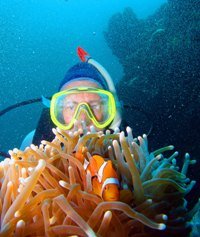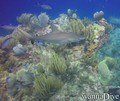Dies ist eine interaktive Karte! Verwende die Steuerelemente zum schwenken und zoomen.
Zugang
|
English (Übersetze diesen text in Deutsch): South of Great bay. The site is equipped with mooring buoys. This dive site is part of the St Maarten Marine Park. You need to have a valid dive tag to be diving on this site. (see www.naturefoundationsxm.org)
English (Übersetze diesen text in Deutsch): South of Great bay. The site is equipped with mooring buoys. This dive site is part of the St Maarten Marine Park. You need to have a valid dive tag to be diving on this site. (see www.naturefoundationsxm.org)
South of Great bay. The site is equipped with mooring buoys. This dive site is part of the St Maarten Marine Park. You need to have a valid dive tag to be diving on this site. (see www.naturefoundationsxm.org)
English (Übersetze diesen text in Deutsch): South of Great bay. The site is equipped with mooring buoys. This dive site is part of the St Maarten Marine Park. You need to have a valid dive tag to be diving on this site. (see www.naturefoundationsxm.org)
English (Übersetze diesen text in Deutsch): South of Great bay. The site is equipped with mooring buoys. This dive site is part of the St Maarten Marine Park. You need to have a valid dive tag to be diving on this site. (see www.naturefoundationsxm.org)
English (Übersetze diesen text in Deutsch): South of Great bay. The site is equipped with mooring buoys. This dive site is part of the St Maarten Marine Park. You need to have a valid dive tag to be diving on this site. (see www.naturefoundationsxm.org)
English (Übersetze diesen text in Deutsch): South of Great bay. The site is equipped with mooring buoys. This dive site is part of the St Maarten Marine Park. You need to have a valid dive tag to be diving on this site. (see www.naturefoundationsxm.org)
English (Übersetze diesen text in Deutsch): South of Great bay. The site is equipped with mooring buoys. This dive site is part of the St Maarten Marine Park. You need to have a valid dive tag to be diving on this site. (see www.naturefoundationsxm.org)
English (Übersetze diesen text in Deutsch): South of Great bay. The site is equipped with mooring buoys. This dive site is part of the St Maarten Marine Park. You need to have a valid dive tag to be diving on this site. (see www.naturefoundationsxm.org)
Wie? Mit dem Boot
Entfernung Kurze Bootszeit (< 10min)
Leicht zu finden? Leicht zu finden
|
|
Tauchplatz Merkmale
Alternativer Name Jason
Durchschnittstiefe 6.1 m / 20 ft
max. Tiefe 13.7 m / 44.9 ft
Strömung Keine
Sichtweite Gut ( 10 - 30 m)
Qualität
Tauchplatz Qualität Großartig
Erfahrung Alle Taucher
Biointeresse Interessant
Mehr Details
Wochenaufkommen
Wochenendaufkommen
Art des Tauchgangs
- Wrack
- Haie
- Riff
Tauchplatz Aktivitäten
- Photography
Gefahren
Zusätzliche Informationen
English (Übersetze diesen text in Deutsch): Dutch frigate, originally named the Jason, launched in 1770. In 1796, the crew mutinied and handed the ship over to the British, who renamed the ship HMS Proselyte. In September of 1801, on a trip from St Kitts to St Martin, the ship struck the Man O War Shoals and sank. All of the crew were rescued, however.
You can still see a couple of large anchors, some cannons and other heavily encrusted objects on the sea floor, right below the current mooring. Plenty of wildlife in around the reef. If you're lucky you may even encounter one or two Caribbean Reef sharks prowling the canyons.
English (Übersetze diesen text in Deutsch): Dutch frigate, originally named the Jason, launched in 1770. In 1796, the crew mutinied and handed the ship over to the British, who renamed the ship HMS Proselyte. In September of 1801, on a trip from St Kitts to St Martin, the ship struck the Man O War Shoals and sank. All of the crew were rescued, however.
You can still see a couple of large anchors, some cannons and other heavily encrusted objects on the sea floor, right below the current mooring. Plenty of wildlife in around the reef. If you're lucky you may even encounter one or two Caribbean Reef sharks prowling the canyons.
Dutch frigate, originally named the Jason, launched in 1770. In 1796, the crew mutinied and handed the ship over to the British, who renamed the ship HMS Proselyte. In September of 1801, on a trip from St Kitts to St Martin, the ship struck the Man O War Shoals and sank. All of the crew were rescued, however.
You can still see a couple of large anchors, some cannons and other heavily encrusted objects on the sea floor, right below the current mooring. Plenty of wildlife in around the reef. If you're lucky you may even encounter one or two Caribbean Reef sharks prowling the canyons.
English (Übersetze diesen text in Deutsch): Dutch frigate, originally named the Jason, launched in 1770. In 1796, the crew mutinied and handed the ship over to the British, who renamed the ship HMS Proselyte. In September of 1801, on a trip from St Kitts to St Martin, the ship struck the Man O War Shoals and sank. All of the crew were rescued, however.
You can still see a couple of large anchors, some cannons and other heavily encrusted objects on the sea floor, right below the current mooring. Plenty of wildlife in around the reef. If you're lucky you may even encounter one or two Caribbean Reef sharks prowling the canyons.
English (Übersetze diesen text in Deutsch): Dutch frigate, originally named the Jason, launched in 1770. In 1796, the crew mutinied and handed the ship over to the British, who renamed the ship HMS Proselyte. In September of 1801, on a trip from St Kitts to St Martin, the ship struck the Man O War Shoals and sank. All of the crew were rescued, however.
You can still see a couple of large anchors, some cannons and other heavily encrusted objects on the sea floor, right below the current mooring. Plenty of wildlife in around the reef. If you're lucky you may even encounter one or two Caribbean Reef sharks prowling the canyons.
English (Übersetze diesen text in Deutsch): Dutch frigate, originally named the Jason, launched in 1770. In 1796, the crew mutinied and handed the ship over to the British, who renamed the ship HMS Proselyte. In September of 1801, on a trip from St Kitts to St Martin, the ship struck the Man O War Shoals and sank. All of the crew were rescued, however.
You can still see a couple of large anchors, some cannons and other heavily encrusted objects on the sea floor, right below the current mooring. Plenty of wildlife in around the reef. If you're lucky you may even encounter one or two Caribbean Reef sharks prowling the canyons.
English (Übersetze diesen text in Deutsch): Dutch frigate, originally named the Jason, launched in 1770. In 1796, the crew mutinied and handed the ship over to the British, who renamed the ship HMS Proselyte. In September of 1801, on a trip from St Kitts to St Martin, the ship struck the Man O War Shoals and sank. All of the crew were rescued, however.
You can still see a couple of large anchors, some cannons and other heavily encrusted objects on the sea floor, right below the current mooring. Plenty of wildlife in around the reef. If you're lucky you may even encounter one or two Caribbean Reef sharks prowling the canyons.
English (Übersetze diesen text in Deutsch): Dutch frigate, originally named the Jason, launched in 1770. In 1796, the crew mutinied and handed the ship over to the British, who renamed the ship HMS Proselyte. In September of 1801, on a trip from St Kitts to St Martin, the ship struck the Man O War Shoals and sank. All of the crew were rescued, however.
You can still see a couple of large anchors, some cannons and other heavily encrusted objects on the sea floor, right below the current mooring. Plenty of wildlife in around the reef. If you're lucky you may even encounter one or two Caribbean Reef sharks prowling the canyons.
English (Übersetze diesen text in Deutsch): Dutch frigate, originally named the Jason, launched in 1770. In 1796, the crew mutinied and handed the ship over to the British, who renamed the ship HMS Proselyte. In September of 1801, on a trip from St Kitts to St Martin, the ship struck the Man O War Shoals and sank. All of the crew were rescued, however.
You can still see a couple of large anchors, some cannons and other heavily encrusted objects on the sea floor, right below the current mooring. Plenty of wildlife in around the reef. If you're lucky you may even encounter one or two Caribbean Reef sharks prowling the canyons.
 Tauchlogs
Tauchlogs
Zeige alle (3)...

|
By
- Spotted 3 Caribbean Reef Sharks, loads of Fr. Grunt. Nice Spiny Lobster running across the sand between rock outcroppings.
More... |

|
By
-
first dive with Arden, had a blast, huge Green Sea Turtles, lobster, blue tang, parrotfish, stone fish;
this was an old dutch gunboat that broke apart on the reef in the late 1700s, the wood ship was all decayed, but the enormous cannons
More... |
|
 Kommentare
Kommentare
Zeige alle (0)...
Sei der erste der einen Kommentar über dieses Land schreibt
Errors, Feedback
Du kannst diese Seite ändern um Fehler zu beheben oder neue Information hinzuzufügen. Wenn du Probleme mit der Seite hast, Schicken Sie uns Ihr Feedback.
 HMS Proselyte
HMS Proselyte Fotos
Fotos Tauchlogs
Tauchlogs Kommentare
Kommentare




